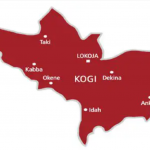China has revealed plans to construct Africa’s first local insulin manufacturing plant in Nigeria, a move expected to revolutionise diabetes care and reduce the country’s dependence on imported treatments.
Chinese Ambassador to Nigeria, Yu Dunhai, made the announcement on Wednesday in Abuja during a reception held to commemorate the 76th anniversary of the founding of the People’s Republic of China.
“Chinese companies are in talks with Nigeria to build Africa’s first local insulin production facility, potentially ending Nigeria’s reliance on imported insulin and positioning Nigeria as a hub for African medical biotechnology,” he stated.
He explained that the initiative is part of a broader China-Nigeria cooperation agenda, citing the recently completed Abuja Water Supply Project—which now delivers clean water to nearly three million residents—as another example. “This project is part of the tangible benefits of China-Nigeria cooperation, alongside the recently completed Abuja Water Supply Project, with a daily capacity of 480 cubic metres, which now provides clean water to nearly three million people,” he added.
Ambassador Yu also reaffirmed China’s long-standing commitment to Africa’s development, emphasising a model of collaboration that is “equal, pragmatic, and efficient.” He said the Asian nation continues to support Africa’s regional integration and enhance its capacity for independent development.
Reflecting on shared national milestones, Yu noted the symbolic connection between the two countries. “Both China’s National Day and Nigeria’s Independence Day fall on the same day, October 1. It is a shared national memory that binds our two peoples together,” he said.
He also highlighted individual examples of the growing cultural and educational exchange between the nations. “Not long ago, as the first Nigerian female train driver trained by CCECC, Ms. Issah Fatimah Abiola, known by her Chinese name Bai Yang, was honoured with China’s ‘Friendship Envoy Award’, one of only six global recipients. Her story inspires many Nigerian women to strive for self-reliance, becoming a shining symbol of China-Nigeria friendship,” he said.
Yu further expressed admiration for a young student from Kano, noting the increasing linguistic and cultural ties between the countries. “Equally impressive is a young boy from a bilingual school in Kano, Ibrahim Ismail. The first time I watched the video when Ibrahim speaks Mandarin Chinese, I felt totally amazed. He is not only fluent, but without any accent. Ibrahim is with us today,” he said.
He also welcomed Nigeria’s recent decision to incorporate Chinese into its senior secondary school curriculum. “I think this is wonderful news. It will serve as an important bridge for deepening China-Nigeria friendship,” he noted.
Speaking at the event, Deputy Senate President Barau Jibrin conveyed President Bola Tinubu’s greetings to the Chinese government and praised China’s transformation and sustained partnership with Nigeria. He highlighted the importance of continued collaboration across various sectors.
“In recent decades, the relationship between Nigeria and China has blossomed into a comprehensive strategic partnership. It is a partnership defined not only by the signing of agreements, but also by tangible outcomes in infrastructure, energy, agriculture, education, defence, trade, and investment,” Jibrin said.
He added that Nigerian lawmakers remain committed to strengthening this partnership. “As legislators in Nigeria, we are committed to providing the enabling environment, legal frameworks, and oversight mechanisms to ensure that these partnerships remain transparent, sustainable, and impactful for the benefit of future generations,” he concluded.










